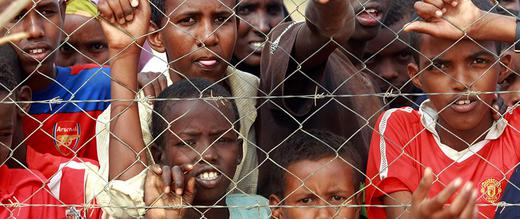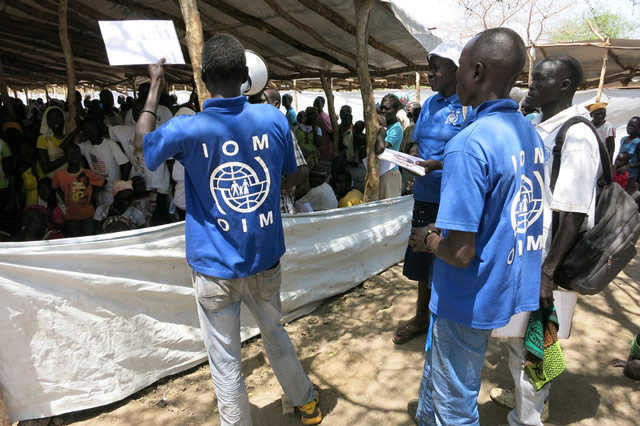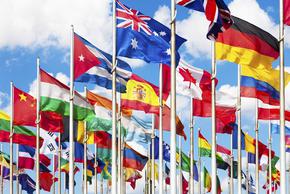The views expressed in our content reflect individual perspectives and do not represent the authoritative views of the Baha'i Faith.
Humankind is one interdependent whole. Any approach to social problems must recognize the global nature of such problems. Examples of this interrelatedness abound: the flow of refugees and of international migrants seeking better jobs and living standards; the impact of international economic events on local and national economies; the effect of trans-national media and communications networks on raising the awareness and expectations of peoples. The list could go on. It is clear, however, that a common framework is needed. And any such framework should not only recognize the world’s interrelatedness, it should encourage and uphold it. To do otherwise is to ignore reality. “It is not for him to pride himself who loveth his own country, but for him who loveth the whole world.” – Baha’i International Community, 9 September 1987.
Can we look into the future for a minute?
Okay, let’s say the nations of the earth have agreed to unify; the world’s borders have now been opened, de-emphasized or eliminated; we’ve successfully held a global election for a planetary governing body and everyone understands they are now world citizens.
What would happen?
Would a flood of economic migrants all leave the poor countries and move to the wealthier ones?
Would that mass migration destabilize and overwhelm the wealthier countries?
Would the resulting destabilization create pressure on everyone in the developed world to lower their standard of living?
No one knows the answers to these hard questions, because the world has never tried anything like this, right? Wrong.
The world has actually already tried several similar policy shifts, like the unification of the 28 nations of the European Union in 1993. The policies of the European Union attempt to ensure the unfettered, free movement of goods, services, capital—and people—across borders. Has this approach worked? Yes, it has, although not without difficulties.
In a very similar way, a global agency called the International Organization for Migration helps control humane and orderly migration across the world’s borders for the benefit of everyone. First chartered in 1951, and taking on its current role in 1989, the IOM assists countries in managing migration, recommending policies that control the movement of people around the world, and helping nations balance their capacity for the humane treatment of refugees with their social and economic impact. Today the IOM leads all other international agencies in managing human movement across the planet. The IOM works with governments and civil society to advance the understanding of migration issues, encourage social and economic development through migration, and uphold the human dignity and well-being of migrants.
When a refugee crisis or a mass migration occurs—typically caused by a war, a famine, a drought or a natural disaster–the IOM helps relocate refugees to countries that agree to accept them; helps with financial aid for the refugees and the countries; conducts job and cultural adaptation training; and generally acts as a benevolent relocation and guidance counselor for everyone involved.
I have a friend who worked for the IOM, supervising much of the out-migration of refugees fleeing from the war in Sudan for five years. He resettled literally thousands of families in many different nations across the world, always with the permission of those nations. Once in Denver, in a hotel, we randomly met the mother of a family he had successfully relocated to the United States, working as a hotel maid. She clutched him, hugged him and cried. “You saved my entire family,” she said, tears rolling down her cheeks. As she told us how well her children were doing in school, we cried too.
It might surprise you to learn that many countries around the globe both need and welcome migrants. In the developed world, the birth rate has fallen dramatically over the past several decades, which means many developed, so-called “first world” countries must grow their labor forces at a faster rate than their populations have grown. Migration into those countries has a beneficial effect, both for the migrants and the countries.
The IOM reports that the number of international migrants in the world has tripled over the past fifty years, from 74 million in 1960 to 232 million today. Of course, the world’s population has nearly tripled during those fifty years, too, so in relative terms, the world’s migrant population has only moved from 2.7% in 1960 to 3% today.
We know now, with the IOM’s experience of a quarter-century, that we can globally manage migration across the surface of the earth, and that it represents a much more efficient and humane way of dealing with such issues than each country ineffectively trying to police and enforce national borders. Building fences, walls and fortresses has never done a good job of keeping people out in the past. Instead, we should, as a united world, intelligently analyze, manage and oversee migration in a rational and reasonable way, carefully observing the human rights of both the native populations of all countries and the migrants and refugees fleeing oppression, violence and poverty in their own countries.


















Comments
Sign in or create an account
Continue with Facebookor